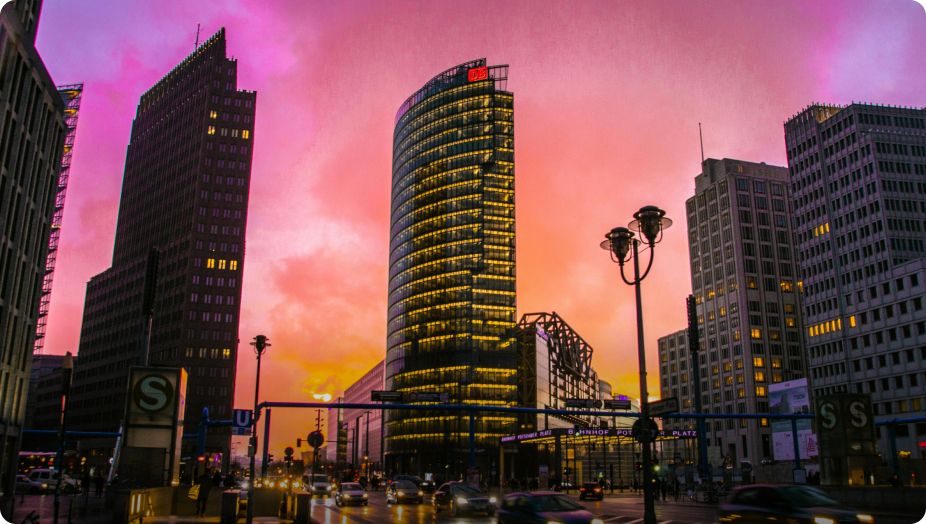
Selling into Germany is a numbers game that rewards merchants who understand how German consumers actually like to pay. For ecommerce businesses, providing the right payment options isn’t just recommended—it’s expected. If you do not offer popular payment methods in Germany, you are leaving money on the table.
Below you will find the most popular payment methods in Germany and a clear path to plug them into your store—without the usual layers of intermediaries.
Why Payment Methods in Germany Matter for Merchants
Expanding to Germany means entering Europe’s second-largest e-commerce market, which generated around €88.3 in 2024, and the positive momentum is expected to persist through 2025 and into the coming years. German consumers prioritise security, speed, and familiarity, demanding a tailored approach to payments. For online shoppers, having their preferred delivery choices readily available is a crucial factor when making online purchases. Nearly 44% of online shoppers would abandon their carts if their favoured delivery provider was unavailable.
Understanding which German payment methods shoppers trust, and which solutions genuinely work, is crucial for competing online, as 91% of European consumers value their preferred payment method.
Top 8 Payment Methods in Germany for 2025
Here are the most popular payment methods in Germany, based on current data and trends, tailored to help merchants optimise their checkout process.
PayPal
There’s no escaping PayPal’s dominance in online payment methods in Germany. PayPal has been used more often for online payments than any other EU country. Nearly 90% of active payment service users opted PayPal for online shopping during 2024. PayPal’s robust buyer protection, seamless checkout, and trust aligns with Germany’s strict data privacy culture. However, high merchant fees can strain profitability, and chargeback risks persist.
Digital Wallets
Other digital wallets such as Google Pay and Apple Pay are also popular online payment methods in Germany. Merchants accepting these methods typically see higher conversion rates and reduced cart abandonment.
By December 2024, digital wallets powered 62% of all online shopping transactions, making them the go-to online payment method. Shoppers love the convenience—whether paying online or in-store, a quick tap on a smartphone or smartwatch does the trick, no cards or cash needed.
But there’s a catch: most digital wallets are tied to debit or credit cards, which means merchants still face steep processing fees (often 2.5–3.5%), plus the headache of chargebacks and fraud risks. For businesses, this can eat into profits, pushing many to explore cost-effective alternatives like Noda’s open banking platform.
Emerging Solutions: Wero Wallet
Wero Wallet initially launched in Germany with the support of several prominent banks, and is now also available in countries like Belgium and France. Focused initially on person-to-person transfers, it plans broad expansion to cover merchant payments, ecommerce, and retail checkouts by late 2025. Wero is built on open banking and the European Payments Initiative, and offers instant transfers, multi-bank integration, and QR payments.
Wero’s wider roll-out is still a work in progress: few banks are active today, and live merchant APIs aren’t expected until late 2025, giving adoption plenty of runway to ramp up.
For merchants seeking a trusted payment gateway Germany, Noda’s open-banking rails already link to all major German banks, as well as 2,000+ banks across 28 other European countries and settle payments instantly—no waiting for next-year roadmaps.
SOFORT
Sofortüberweisung was widely used for direct bank transfers, but since being acquired by Klarna, it has gradually been merged into Klarna’s “Pay Now” service. By March 2025, SOFORT was discontinued as a standalone solution.
As Sofort integrated into Klarna's ecosystem, merchants faced four key challenges: higher costs through intermediary fees, limited geographical coverage, missing essential features, and industry restrictions. This made German merchants switch to alternatives such as open banking solutions.
Let’s see the how open banking platform Noda solves these issues:
- High Costs: Klarna’s intermediary role increases fees unlike Noda’s direct bank-to-bank payments, which start at just 0.01%.
- Limited Reach: Klarna’s coverage for direct bank payments excludes some European markets, while Noda connects to 2,000+ banks across 28 countries in the EU.
- Missing Features: Klarna lacks direct payouts and open banking data tools such as identity verification or sign-in via bank, which are often required for industries like gaming platforms, marketplaces, car rentals, etc.
- Industry Restrictions: Klarna’s BNPL model may not be available for businesses in restricted sectors like travel or financial services, while Noda supports diverse industries.
Debit and Credit Cards
With penetration expected to rise from 94.65% in 2024 to 95.98% in 2029, debit cards continue to strengthen their position as preferred payment method for everyday purchases.
Debit cards continue to lead despite the rise in credit card transactions, as many consumers avoid the higher fees, slower processing and fraud concerns that come with credit-based payments.
While debit cards dominate, credit cards are slowly gaining traction and their usage is expected to grow steadily over the next few years. Credit cards are quietly catching up: online spend is forecast to rise from US$14.3 bn in 2023 to US$20.6 bn in 2028, still healthy growth but easing to a 6.3 % CAGR as shoppers increasingly favour debit and open-banking alternatives.
Giropay
Giropay used to be one of the most used payment methods Germany. It worked like today’s open banking platforms, so customers could easily pay straight from their bank accounts with instant confirmation. With Giropay’s merging into Paydirekt, German merchants look for reliable alternatives that:
- Replicates Giropay’s familiar bank-redirect screen yet gives instant settlement instead of next-day clearing.
- Gives regulatory peace of mind with PSD2 compliance and GDPR-certified.
- Costs lower than legacy systems.
- Does not need rewriting their checkout.
For merchants transitioning from legacy systems like Giropay, modern open banking platforms offer familiar bank-redirect flows with critical upgrades: pan-European reach, near-instant settlement, and significantly lower fees. Solutions like Noda maintain compatibility with German banks while future-proofing operations.
| Need | How Noda delivers |
| Familiar screen | User-friendly UX; shoppers approve transactions in their bank app. |
| Instant settlement | Instant bank payments with real-time settlement, not the next business day. |
| Compliance | Fully compliant with PSD2 and comes with strong fraud protection. |
| Cost down | Fees starting from 0.1 % —~80 % cheaper than card rails. |
| One API, two markets | Connect to all major German banks, plus 2,000+ banks across 28 countries in Europe—no extra integration. |
Buy Now, Pay Later (BNPL)
Buy Now, Pay Later (BNPL) solutions are rapidly gaining traction in German e-commerce, reflecting a broader appetite for more flexible payment choices. While only select providers such as Klarna or PayPal offer branded BNPL options, its market share is 20% in the German E-commerce Market. This demonstrates that Germany’s BNPL share is four times the global average of 5 %, making it one of the highest-priority checkout options for merchants aiming to reduce cart abandonment and lift average order values.
Bank Transfer
Traditional bank transfers such as Überweisung and SEPA Direct Debit (SEPA-Lastschriftmandat) are still widely used in Germany, especially for recurring bills and one-time payments. While SEPA Instant now allows near-instant transfers, these are typically initiated manually by the user via their bank app.
Merchants can super-charge the same SEPA Instant rails with Noda’s open-banking API layer—customers authorise the payment in their bank app in seconds, and funds land instantly at 0.1 % fee and zero chargebacks.
Open Banking
Between 2023 and 2025, Germany’s open banking landscape has evolved rapidly. Key drivers include new European regulations like PSD3 and FiDA, improved API standards from the Berlin Group, and a booming fintech scene with over 950 start-ups by the end of 2023. German banks have embraced instant payments and digital wallets, highlighted by the launch of the Wero app under the European Payments Initiative and the rollout of giroAPI, a unified banking interface. Additionally, SEPA Instant payments became free to receive, encouraging wider use of instant account-to-account transfers.
Noda excels here – offering real-time bank payments across 2,000+ European banks, fees from 0.1%, and built-in fraud prevention. With instant open banking payments projected to reach 5% of all German transactions by 2028, adopting solutions like Noda isn’t just convenient – it’s essential for capturing Germany’s payment evolution.
Discover Noda: Designed to Meet the Payment Needs of German Merchants
Noda delivers a streamlined payment gateway tailored for German merchants launching or expanding. Its standout features include:
- Comprehensive Coverage: Connect to all major German banks, plus 2,000+ banks across 28 European countries via a single integration.
- Ultra-Low Fees: Transaction costs start at 0.1%– pay only 0.1 % on every €1 of turnover; on €100 k monthly sales you keep €2,300 more than with 2.4 % card fees.
- Dedicated Support: Personalised account management to ensure smooth setup and ongoing optimisation.
- Instant Settlements: Funds hit your account in seconds, bypassing slow card processing.
- Effortless Integration: Compatible with WooCommerce, Magento, Prestashop, Opencart or custom checkout, and APIs for deployment.
- Versatile Payment Options: Blend open banking with cards, Apple Pay, and Google Pay for broad customer reach.
- No-Code Solutions: Create instant payment links without a single line of code or even a website. This means smaller merchants and businesses can collect bank payments quickly and directly without a dedicated online store.
Noda empowers German merchants to meet consumer demand for mobile payments, cut costs, and scale across Europe effortlessly.
Ready to leverage Germany’s open banking potential?
Book Your Free Demo to explore how Noda can transform your business in Germany.
FAQs
Does Germany use PayPal?
Absolutely! Do you know, around 90% German online shoppers had used PayPal for payments last yearl—it is among the most popular payment methods in Germany for ecommerce.
Why is PayPal popular in Germany?
PayPal’s buyer protection, seamless checkout, and alignment with Germany’s data privacy culture make it a trusted choice.
What credit cards are accepted in Germany?
Visa, Mastercard, and American Express are accepted, mainly online or at large retailers. American Express and Diners Club are also accepted but these are less common. To ensure uninterrupted transactions and preempt any card security concerns, we suggest you alert your bank to your upcoming travel.
What is the most used payment method in Germany?
Digital Wallets, especially PayPal, debit cards, and online bank transfers dominate, with open banking getting popular due to lower costs and security.
Latest from Noda

Top Payment Methods in Austria: How to Accept Payments Efficiently in 2026

GoCardless Review 2026: What Merchants Need to Know

AIS vs PIS in Open Banking: What’s the Difference & When to Use Each


